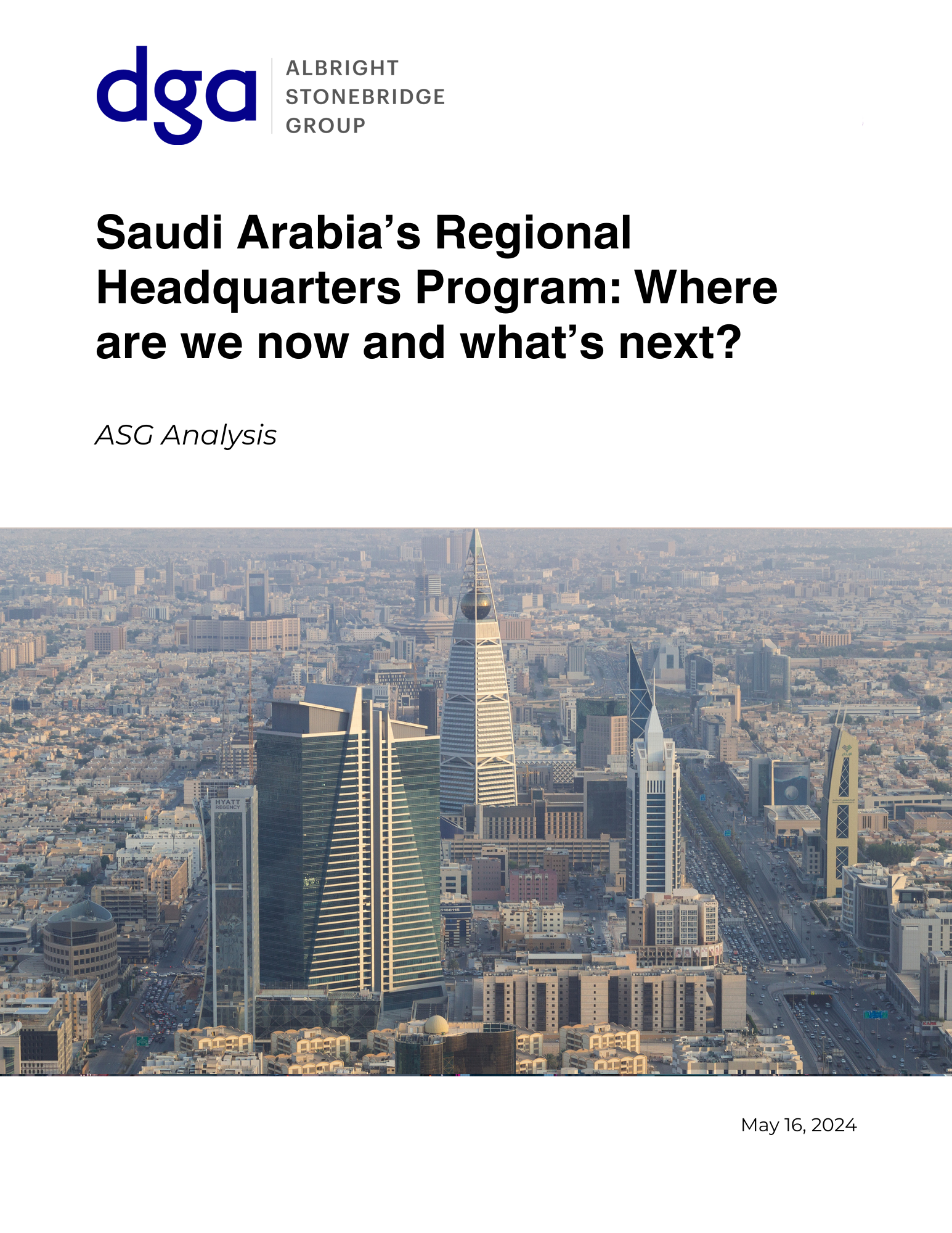Analysis: Saudi Arabia’s Regional Headquarters Program: Where Are We Now And What’s Next?

Key takeaways
- First introduced in February 2021, the Saudi Regional Headquarters (RHQ) Program is now at a critical juncture. On January 1, 2024, RHQ procurement controls formally took effect. This means that Saudi government entities can no longer contract with companies that have regional headquarters outside of the Kingdom, except in certain circumstances.
- The Kingdom has already begun to enforce RHQ requirements in government procurement. The Saudi Ministry of Finance has circulated to other Saudi government entities a list of multinational companies that are non-compliant with RHQ requirements. These companies are barred from contracting with government entities until they resolve their RHQ status.
- The details of the Program have evolved over the past three years but the overall policy direction and the commitment of the Saudi government to the Program have remained consistent. The Saudi government views the RHQ Program as crucial to bringing the leadership of multinational companies closer to the Kingdom. Saudi leaders believe that this in turn will lead companies to better appreciate the opportunities offered by the Saudi economy and invest more in the Kingdom over the long-term. The speed with which the Saudi government has moved to enforce RHQ requirements in procurement underscores its commitment to the program.
- In late December 2023, the Council of Ministers issued updated RHQ procurement controls that provide government entities with a clearer process for obtaining exemptions to contract with companies that do not have RHQs in the Kingdom. In February the Zakat, Tax, and Customs Authority (ZATCA) published long-awaited tax guidance, which provides tax exemptions for RHQ-related activities but also stands to impose significant compliance burdens.
- This is a crucial moment for companies at all stages of their RHQ journey. Companies that have already established or are in the process of establishing RHQs should watch closely for signs of how Saudi authorities intend to approach enforcement and prepare for an evolving compliance landscape. Companies that are still weighing whether to establish RHQs in the Kingdom should consider the costs and benefits in a fresh light based on the new tax guidance and potential compliance burdens. (For more on the implications for companies see here.)
Read the full analysis here.
About ASG
Albright Stonebridge Group (ASG), part of Dentons Global Advisors, is the premier global strategy and commercial diplomacy firm. As a multidisciplinary advisory firm, we help clients understand and successfully navigate the intersection of public, private, and social sectors in international markets. ASG's worldwide team has served clients in more than 120 countries.
Our Middle East and North Africa Practice has extensive experience applying a systematic approach and a strong understanding of the region's complex economic, political, and regulatory climates to help clients navigate markets, with our offices in Dubai and Riyadh serving as hubs for the firm's operations. For additional information or to arrange a follow-up, please contact Michael Bessey or Juliana Rordorf.
